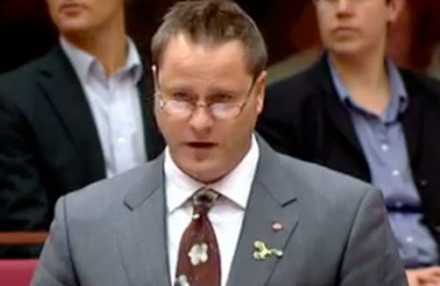
Peter Whish Wilson
Pressure is building for a royal commission into the financial industry after a cross parliamentary group backed a full investigation into life insurance, forestry managed investment schemes and financial planning. Source: The Guardian (Aust)
Nationals senator John Williams, Greens senator Peter Whish-Wilson and independent Nick Xenophon called for a royal commission after a report by a Senate committee, called Bitter Harvest, into failed forestry managed investment schemes, including Timbercorp and Great Southern.
Liberal senator Bill Heffernan, who rang the bell on such schemes as early as 2010, also said he would not be surprised if a royal commission resulted from the evidence.
The Senate report found forestry management schemes saw $4bn in investment flow into the sector after special tax treatment was given by the Howard government, only for the schemes to collapse.
As a result, thousands of people lost their life savings in what Whish-Wilson characterised as a giant “Ponzi” scheme.
For example, of the 14,000 investors who invested in Timbercorp alone, there are still 2500 people on Timbercorp Finances’ loan books who now owe $380m due to late penalties.
The report made 24 recommendations, including strengthening the powers of the Australian Securities and Investments Commission (Asic), the establishment of a bank “hardship” scheme and funding for financial literacy education.
But Whish-Wilson, Williams and Xenophon believe only a royal commission will provide answers to questions raised by the reports and Xenophon also wants a compensation scheme funded by government and the banks.
The report follows the investigation by Fairfax journalist Adele Ferguson and Four Corners into CommInsure life insurance products and a previous investigation into financial planners.
The CommInsure scandal has sparked an Asic investigation.
Williams is a long-term campaigner to clean up the financial advice market and has previously called for a royal commission.
He said the weight of evidence was building and, in a rare show of unity, Williams joined Xenophon and Whish-Wilson for a media conference on the issue.
“I’m getting sick to death of financial products – when I started it was Storm products – causing many elderly people to lose their whole livelihoods,” he said.
“We had financial planning scandal. Now we’ve got the life insurance scandal and we have Timbercorp and Great Southern.
“These bad products where good, hard-working Australians, many of them in the twilight of their lives, they might be 70 to 75 years old, are facing financial ruination because of bad financial products.
“The more I see of this … it leans towards a royal commission into the financial sector.”
In 2009, two of Australia’s largest agribusiness managed investment schemes (MIS) – Timbercorp and Great Southern – collapsed, followed by other major schemes, including Willmott Forests Ltd and Gunns Plantation Ltd.
The products were designed to increase Australia’s forestry plantations and attracted experienced investors as well as “average hard-working Australians”.
“The stories of financial loss and personal anguish retold in this report do not adequately convey the deep pain and suffering endured by many of the growers who invested in MIS that eventually folded,” the report said.
“Some struggled to put together their submission because reliving the financial and personal distress was ‘extremely confronting’, while others could not rouse the energy and have remained silent.”
The financial products were both designed by the investment companies, which in many cases also lent money to their customers to buy the products.
Banks underwrote the loans.
“[The banks] were in a position where they knew if they pulled their financing, the house of cards would come tumbling down so I believe they kept these companies going when they shouldn’t have because these companies were out right until the music stopped selling new schemes to new growers and new investors who ultimately ended up doing their dough,” Whish-Wilson said.
“I think these are questions that we absolutely need to get to the bottom of and I am convinced that the banks themselves are ultimately culpable for this financial tragedy as I believe some politicians are from previous governments who refused to change legislation when the warning signs were there.”
In 2010, Liberal senator Bill Heffernan warned in a report he had “grave concerns” at some of the companies’ behaviour and urged the government to reconsider the tax treatment of managed investment schemes. Heffernan told Guardian Australia: “Given the evidence over the years it does not surprise me this could lead to a royal commission.”





